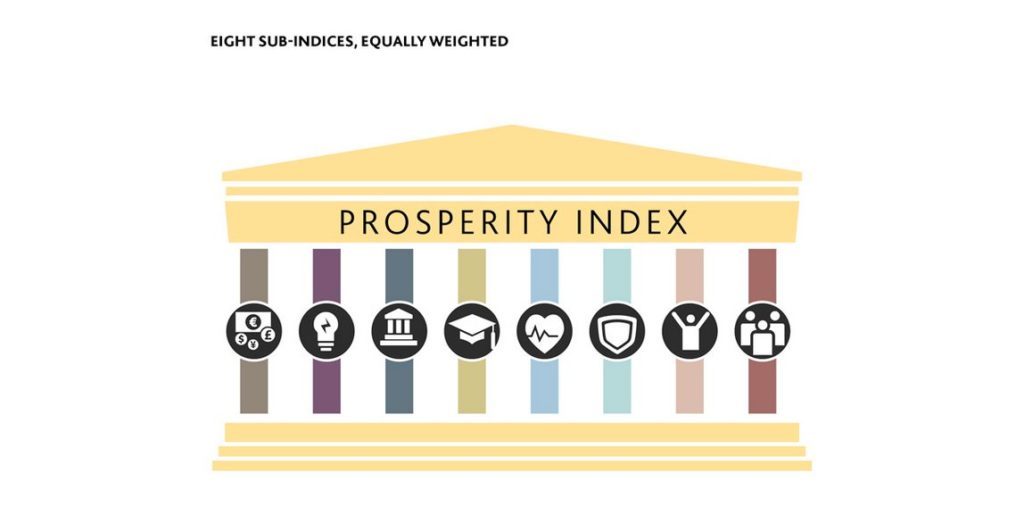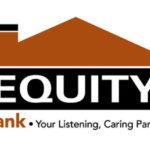Uganda ranks 135th globally in prosperity index, performing better than the average for Sub-Saharan nations, according to 2019 Legatum Prosperity Index released today.
The ranking done by Legatum Institute is based on a variety of factors including wealth, economic growth, education, health, personal well-being, and quality of life.
The index reveals that global prosperity is at its highest ever level, with 148 out of 167 countries experiencing higher levels of prosperity than a decade ago.
The increase has been driven by more open economies and improved lived experiences due to better health, education, and living conditions around the world. However, weaker personal freedom and deteriorating governance are holding back further improvements in prosperity.
According to the report, governance has declined around the world over the last 10 years and personal freedoms have also deteriorated, with a particular decline in the freedom to speak, assemble and associate.
Meanwhile, although global levels of safety and security have bounced back since 2017 due to a reduction in politically-related terror and violence and a slight reduction in terrorist activity, the index says, they remain below 2009 levels and have fallen significantly in Middle East and North Africa and Sub-Saharan Africa over the last decade, primarily due to an increase in the number of new conflicts and a rise in terrorism in these regions.
However, globally social capital has improved over the last decade, with social networks strengthening and increased trust in institutions such as the police force, the judiciary, and the military. Over the same period of time, people around the world have become more tolerant of other groups in society, particularly of the LGBT community, with residents of 111 countries expressing more tolerance than they did 10 years ago.
Dr Stephen Brien, Director of Policy at the Legatum Institute, commented: “There is a fundamental relationship between strengthening institutions and broader economic and social development. This is highlighted in the Index and is also something we’ve seen through our work this year focusing on both the African continent and the United States, where the importance of institutions underpinning social wellbeing is particularly evident.
“The findings of the Index have also reinforced our belief that the strength of personal and social relationships, social norms, and civic participation is an inherent and essential component of a prosperous society. It demonstrates the vital importance of viewing prosperity holistically to create an environment in which everyone can reach their full potential.
“Policymakers rarely consider fiscal and macroeconomic policy at the same time as social factors. But prosperity is the result of institutional, economic, and social wellbeing working together to create effective institutions, an open economy, and empowered people who are safe, healthy and educated.”
Key Summary of the Domains and Pillars:
Inclusive Societies
- Safety and Security measures the degree to which conflict, terror, and crime have destabilised the security of individuals, both immediately and through longer lasting effects.
- Personal Freedom measures country-wide progress towards basic legal rights, individual liberties and social tolerance.
- Governance measures the extent to which there are checks and restraints on power and whether governments operate effectively and without corruption.
- Social Capital measures the strength of personal and social relationships, social norms and civic participation in a country.
Open Economies
- Investment Environment measures the extent to which investments are adequately protected and are readily accessible.
- Enterprise Conditions measures the degree to which regulations enable businesses to start, compete, and expand.
- Market Access and Infrastructure measures the quality of the infrastructure that enables trade, and distortions in the market for goods and services.
- Economic Quality measures how well a state’s economy is equipped to generate wealth sustainably and with the full engagement of its workforce.
Empowered People
- Living Conditions measures the degree to which a reasonable quality of life is experienced by all. Several key areas, such as material resources, shelter, a healthy diet, basic services and connectivity are considered.
- Health measures health outcomes, illness and risk factors, and mortality rates.
- Education measures enrolment, outcomes and quality across four stages of education (pre-primary, primary, secondary and tertiary education), as well as the skills in the adult population.
- National Environment measures the aspects of the physical environment that have a direct effect on people in their daily lives and changes that might impact the prosperity of future generations.
How Uganda ranks for the 12 measures of prosperity:
Inclusive Societies 137th
- 133rd for Safety and Security – up 17 places from 2009
- 117th for Personal Freedom – down 2 places from 2009
- 118th for Governance – down 10 places from 2009
- 139th for Social Capital – up 3 places from 2009
Open Economies 112th
- 83rd for Investment Environment – up 16 places from 2009
- 81st for Enterprise Conditions – down 7 places from 2009
- 136th for Market Access & Infrastructure – up 1 place from 2009
- 132nd for Economic Quality – down 9 places from 2009
Empowered People 138th
- 143rd for Living Conditions – down 5 places from 2009
- 140th for Health – up 10 places from 2009
- 137th for Education – down 2 places from 2009
- 125th for Natural Environment – down 9 places from 2009
Major areas of concern for Uganda are:
- Property crime for which it ranks 165th
- Mental health for which it ranks 166th
- The quality of the forest, land and soil for which it ranks 157th
- Basic Services for Living Conditions for which it ranks 161st
Areas Uganda does well in:
- Restrictions on International Investment for which it ranks 7th
- Labour Market Flexibility for which it ranks 14th
Other countries you are interested in:
- Kenya ranks 113th overall globally, performing best on Social Capital at 44th, Investment Environment at 67th and Enterprise Conditions at 67th
- Tanzania ranks 120th overall globally, performing best on Natural Environment at 67th, Governance at 96th and Social Capital at 100th
- Rwanda ranks 106th overall globally, performing best on its Investment Environment at 42nd, Enterprise Conditions at 50th and Governance at 64th
Top ten performers were; Denmark, Norway, Switzerland, Sweden, Finland, Netherlands, New Zealand, Germany, Luxembourg and Iceland while worst performers were; Sudan, Burundi, Eritrea, Somalia, Democratic Republic of Congo, Afghanistan, Chad, Central African Republic, Yemen and South Sudan.








